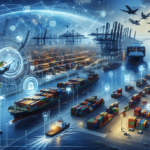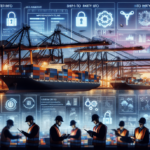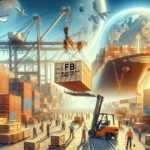Understanding High Sea Sales in International Trade
High sea sales are a critical component of international trade, allowing buyers to purchase goods while they are still in transit, before reaching their port of destination. This practice offers significant advantages for both importers and exporters, including cost reduction, minimized delays, and streamlined shipping processes.
Definition of High Sea Sales
High sea sales occur when transactions take place while goods are en route to their final destination. This allows transactions to be completed without waiting for goods to arrive at the port, enhancing efficiency and flexibility in international trade.
Advantages and Risks
One of the primary benefits of high sea sales is the mitigation of risks associated with international shipping, such as delays and damage. However, these transactions can be complex, requiring meticulous attention to legal and regulatory requirements to prevent disputes and additional costs.
Benefits of High Sea Sales for Importers and Exporters
Revenue Increase for Exporters
Exporters can boost their sales revenue by allowing buyers to purchase goods mid-transit. This approach facilitates quicker inventory turnover and reduces shipping costs, providing exporters with a competitive edge.
Cost Savings and Flexibility for Importers
Importers benefit from high sea sales by securing goods at potentially lower prices and reducing lead times. The ability to adjust orders based on market conditions or customer demand adds significant flexibility to their operations.
Expanding Customer Base
Offering goods that are still in transit can attract a broader range of buyers, including those seeking unique or hard-to-find products. This strategy enhances brand awareness and fosters a loyal customer base over time.
WorldShip: Optimizing Your Shipping and Logistics
Overview of WorldShip
WorldShip is a comprehensive shipping software solution developed by UPS. It is designed to streamline shipping and logistics operations for businesses by offering features such as automatic shipping label creation, real-time tracking, and detailed reporting.
Streamlining Shipping Processes with WorldShip
WorldShip automates many shipping tasks, including label creation, inventory management, and shipment tracking. This automation reduces the likelihood of human error, enhances efficiency, and increases overall productivity for businesses.
Integrating High Sea Sales into WorldShip
Integrating high sea sales transactions into WorldShip involves setting up new shipments with specific details related to in-transit purchases. This integration ensures seamless management of high sea sales alongside regular shipping processes.
Step-by-Step Integration Guide
- Create a new shipment in WorldShip, entering shipper and recipient information, along with weight and dimensions.
- Select the appropriate carrier and service type based on your shipping needs.
- Input high sea sale details, including intermediary or middleman contact information.
- Verify all shipment information and submit the order.
- Monitor the shipment in real-time, receiving automatic status updates.
Best Practices for Managing Shipments
To maximize the benefits of WorldShip, businesses should maintain accurate shipment records, communicate effectively with intermediaries, and regularly review performance metrics to identify areas for improvement.
Challenges and Solutions in High Sea Sales
Regulatory Compliance and Documentation
Ensuring compliance with international trade regulations is paramount in high sea sales. Accurate and detailed documentation, including bills of lading and commercial invoices, is essential to prevent delays and avoid legal issues.
Mitigating Fraud and Payment Risks
High sea sales can pose risks such as fraud or non-payment. To mitigate these risks, businesses should perform thorough due diligence on buyers, utilize secure payment methods like letters of credit, and establish clear contractual terms.
Overcoming Language and Cultural Barriers
Language and cultural differences can complicate international transactions. Partnering with experienced logistics providers and employing professional translators can facilitate smoother communication and reduce misunderstandings.
Choosing the Right Logistics Partner
Key Considerations
Selecting a logistics partner with expertise in high sea sales and international trade is crucial. Factors such as experience, service responsiveness, and the ability to integrate with shipping software like WorldShip should be prioritized.
Importance of Global Networks
A logistics partner with a robust global network ensures efficient transportation of goods across borders. Local expertise and support in foreign markets can significantly enhance the effectiveness of high sea sales operations.
Real-Life Success Stories
Streamlined Shipping Processes
Companies that have integrated high sea sales with WorldShip report streamlined shipping processes, reducing turnaround times and increasing operational efficiency.
Increased Sales Revenue and Customer Satisfaction
Businesses utilizing high sea sales alongside WorldShip have experienced increased sales revenue and improved customer satisfaction due to faster delivery times and enhanced flexibility in order management.
Conclusion
High sea sales, when effectively integrated with shipping solutions like WorldShip, offer substantial benefits for businesses engaged in international trade. By understanding the intricacies of high sea sales and leveraging advanced shipping software, companies can enhance their operational efficiency, reduce costs, and strengthen their market position.


















